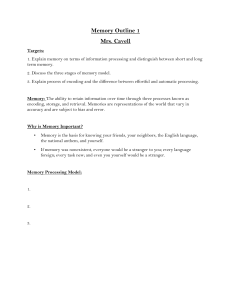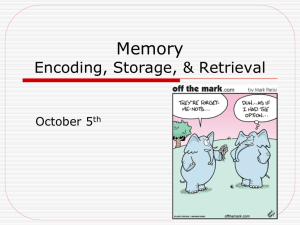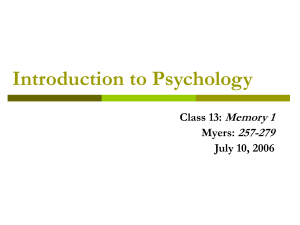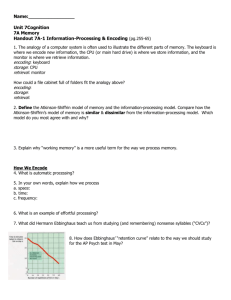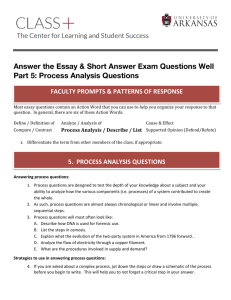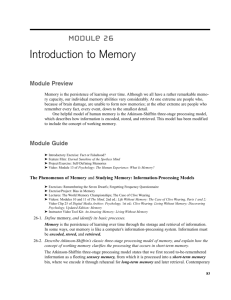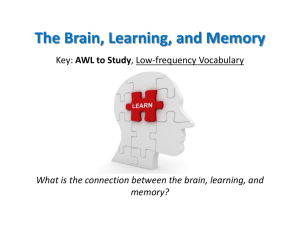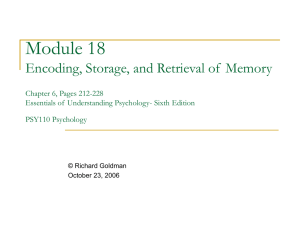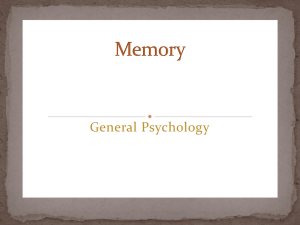A.P. Psychology 7-A(A) - The Phenomenon of Memory
advertisement
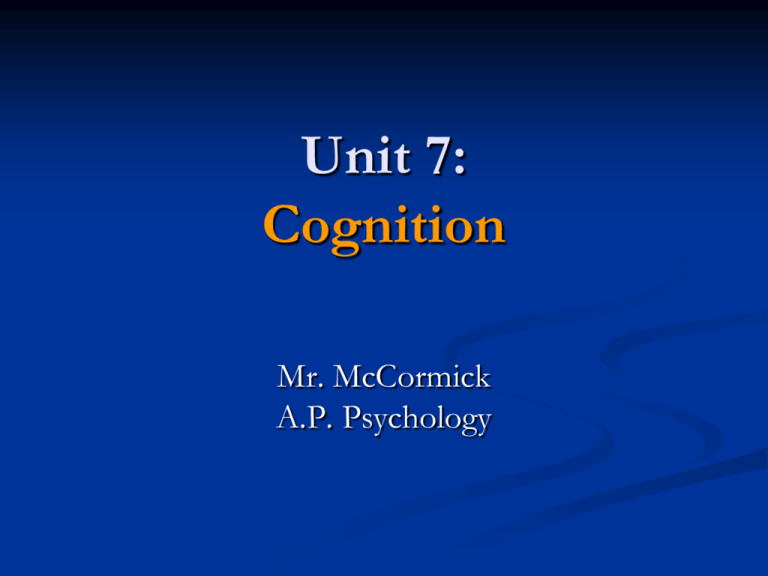
Unit 7: Cognition Mr. McCormick A.P. Psychology Essential Question How do people process, store, and retrieve information? What are the foundations of thought, problem-solving, and language? Unit 7-A (A): The Phenomenon of Memory Mr. McCormick A.P. Psychology Do-Now (Discussion) What What is memory? would life be like without memory? Clive Wearing: Living Without Memory The Phenomenon of Memory Memory: The persistence of learning over time through the storage and retrieval of information Processes of Memory Encoding: Storage: The processing of information into the memory system The retention of encoded information over time Retrieval: The process of getting information out of memory storage Processes of Memory Keyboard (Encoding) Disk (Storage) Sequential Process Monitor (Retrieval) Processes of Memory How have you used the three parts of your memory system (encoding, storage, and retrieval) in learning something new today? Stages of Memory Sensory Memory: Short-term Memory: The immediate, very brief recording of sensory information in the memory system Activated memory that holds a few items briefly, such as the seven digits of a phone number while dialing, before the information is stored or forgotten Long-term Memory: The relatively permanent and limitless storehouse of the memory system Includes knowledge, skills, and experiences Stages of Memory Atkinson-Shiffrin’s (1968) Three-Stage Model of Memory: Stages of Memory Modifications have been made to the Atkinson-Shiffrin Model of Memory: Some information skips the first two stages and enters long-term memory automatically Since we cannot focus on all the sensory information received, we select information that is important to us and actively process it into our working memory: A newer understanding of short-term memory that focuses on conscious, active processing of incoming auditory and visual-spatial information, and of information retrieved from long-term memory Stages of Memory Can you recite the second sentence of the Pledge of Allegiance? While this may seem easy at first, upon reciting the pledge in your head, your working memory will inform you that it is actually only one sentence long. Review What is memory? Identify and describe the 3 processes of memory. Identify and describe the 3 stages of memory. What was criticized about the Atkinson-Shiffrin Three-Stage Model of Memory? What is working memory? Homework Unit 7 Key People Unit 7 FRQ Research Study Response # 16: “Thanks for the Memories!” (Pgs. 117-125) Chapter 9 Outline: “Thinking, Problem-Solving, Creativity, and Language”
